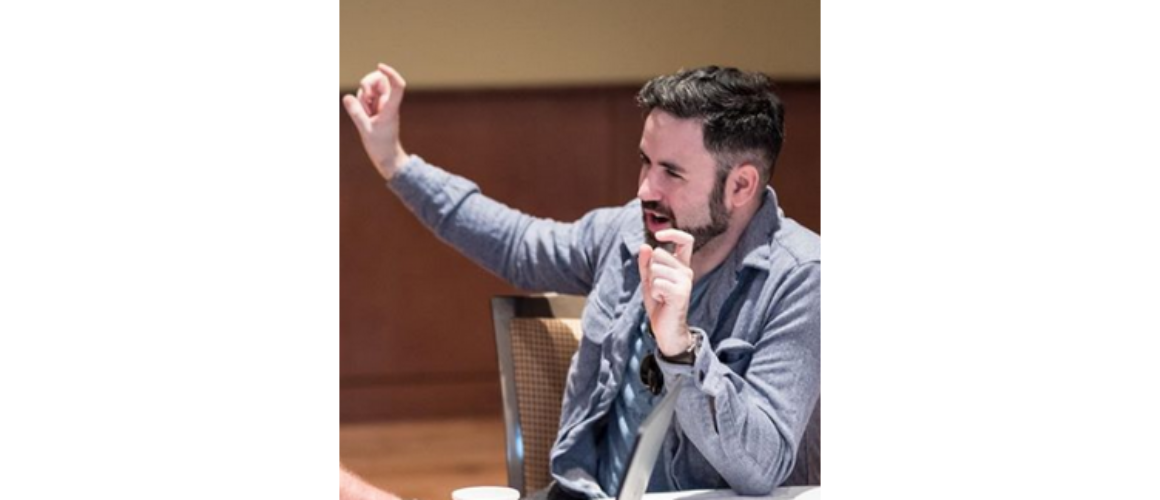Systems Games with Dan Norton of Filament Games | Episode 101
Listen to this episode on your phone!
As Chief Creative Officer and co-founder of Filament Games, Dan Norton oversees Filament’s design team and works on continuously improving the company’s design process. Dan has designed games about a uniquely broad range of topics, ranging from marine turtle ecology to legal argumentation. His games have won numerous industry awards and have been played millions of times in classrooms across the country. Dan approaches each new project at Filament as an opportunity to find authentic passion and engagement around learning new things, blending his love for game design with his love of collaborative creativity to support and lead Filament design and artistic practices.
A regular day for Dan consists of three main elements, the first being the design role. This involves working with clients to produce design documents as well as working with the design. Another element is the oversight of the design team, meeting with the team and troubleshooting any problems that might arise. The final element is that Dan is part of the founding team, this involves looking at the bigger picture and what’s important to the company.
One of Dan’s favorite fails is when he was working on his first systems-driven game. The problem that occurred is that when the core mechanic of your game is a system, that system must be balanced from the start as you will struggle to get any meaningful data about the player experience if not and so throughout this project Dan wasn’t sure if the game would ever be good. Eventually, Dan achieved what he set out to with the game, but it was a very tough time for him as the designer. Dan’s advice from this is if you’re confident in the structures you have, hang on tight and don’t freak out. Work on your tuning and get there when you get there. Just ensure you schedule enough time for any of these flaws you might find.
One of Dan’s favorite success stories is from when he started Filament. They were working on their own prototypes, the prototype they were working on was around ocean science intended for the classroom. This was a wildly ambitious game and it never was actually fully completed but that project is what they used to start the conversation of what was possible. This led to Dan’s partner showing it at a conference that got a funder excited and is what really got Filament off of the ground.
Filament’s process begins with isolating the learning objective or the impact objective. This helps clarify the goals, once these have been identified they use the same 3 design strategies over and over, these are Identity, Systems and Verbs. Identity, meaning their games are unique and can set you up to be someone you’re not. Systems come down to the rules and restraints of a game, understanding, testing and mastering those rules are a key component of becoming good at the game and designing the rules based on the learning objectives will align the two. Verbs, meaning in games you’re given abilities and it constrains what you can do.
A best practice for Dan is around the word gamification, he has had to think about this word a lot as he must apply this to things that would traditionally not involve gamification. When Filament is referring to Gamification they’re talking about “game design strategy and mechanics that are content-agnostic. Things like point, badges, avatar upgrades or cosmetics. They’re not game structures that feedback into the game experience… But this is not enough to use the real power of games to create games for positive impact”. What is important to Dan and Filament is to recontextualize what they are learning as a meaningful problem placed in a system that matters.
Dan would recommend Jesse Schell to be on the Professor Game podcast as well as his book The Art of Game Design: A Book of Lenses.
Dan’s favorite game at the moment is Borderlands 3 as he has just started playing this game. He would consider his superpower his ability to work with people, his creative problem solving as well as fostering a positive space for creative communication to solve problems.
We can reach Dan and Filament Games at filamentgames.com and check out RoboCo, also on Twitter as @FilamentGames and Facebook FilamentGames
There are many ways to get in touch with Professor Game:
Subscribe to Professor Game E-mail Newsletter
Looking forward to reading or hearing from you,
Rob



Bobby Lockhart talks about the main learning game mechanic | Episode 111 – Professor Game
December 12, 2019 @ 5:40 pm
[…] love to see Scot Osterweil, head of the MIT education arcade, on the podcast. Also Jesse Schell, Dan Norton and Dan White of Filament Games as well as Mimi Ito, learning games researcher. He would recommend […]